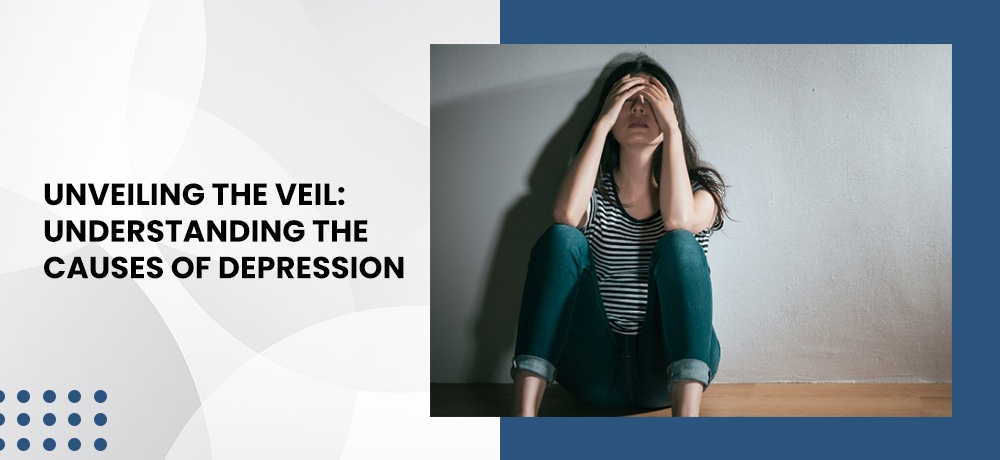Unveiling the Veil: Understanding the Causes of Depression

As a Registered Social Worker and Psychotherapist, I have had the privilege of supporting individuals through their journeys of healing and self-discovery. One of the most common mental health concerns that I encounter in my practice is depression. It is a complex and often misunderstood condition that can have a profound impact on a person's life. In this blog, I aim to shed light on the causes of depression, helping you gain a deeper understanding of this condition and its multifaceted nature.
1. Genetic Predisposition: Unveiling the Genetic Factors
Depression, like many other mental health disorders, can have a genetic component. Research suggests that individuals with a family history of depression are more likely to develop the condition themselves. While specific genes have not been definitively identified, studies have shown that certain genetic variations may increase the vulnerability to depression. Understanding our genetic predisposition can provide valuable insights into the causes and potential prevention strategies for depression.
2. Neurochemical Imbalance: Balancing the Brain Chemistry
Our brain chemistry plays a crucial role in regulating our moods and emotions. Depression has been linked to an imbalance of neurotransmitters, such as serotonin, norepinephrine, and dopamine. These chemicals facilitate communication between brain cells and impact our overall emotional well-being. Disruptions in their functioning can lead to depressive symptoms. By exploring the neurochemical aspects of depression, we can gain a better understanding of how these imbalances contribute to the condition.
3. Environmental Factors: Unmasking the External Triggers
The environment in which we live and interact can significantly influence our mental health. Stressful life events, such as trauma, loss, abuse, or major life changes, can trigger or exacerbate depression. Additionally, chronic stress, social isolation, unhealthy relationships, and a lack of social support can all contribute to the development of depressive symptoms. Recognizing and addressing these environmental factors is crucial in understanding the causes of depression and devising effective treatment plans.
4. Cognitive Patterns: Unearthing Negative Thinking
Our thoughts and beliefs shape our perception of the world and ourselves. Negative thinking patterns, such as distorted thinking, self-criticism, and excessive rumination, can contribute to the onset and persistence of depression. Cognitive theories of depression highlight the importance of identifying and challenging these unhelpful thinking patterns. By examining the cognitive aspects of depression, we can work towards cultivating more positive and adaptive thoughts, leading to improved mental well-being.
Depression is a complex and multifaceted condition that can arise from various causes, ranging from genetic predisposition to environmental factors and cognitive patterns. Understanding these underlying causes is a crucial step toward effectively addressing and managing depression.
If you're seeking professional assistance or wish to explore effective strategies for managing depression, I invite you to reach out to Recalibrate Therapeutic Services. Together, we can navigate the complexities of depression, empower you with the tools to overcome its challenges and restore your sense of well-being.
Remember, you are not alone, and there is always hope for a brighter tomorrow.
If you or someone you know is struggling with depression, reach out to Recalibrate Therapeutic Services for compassionate support and effective strategies to overcome this condition. Visit my website or contact me directly to schedule a consultation and embark on your journey of healing.